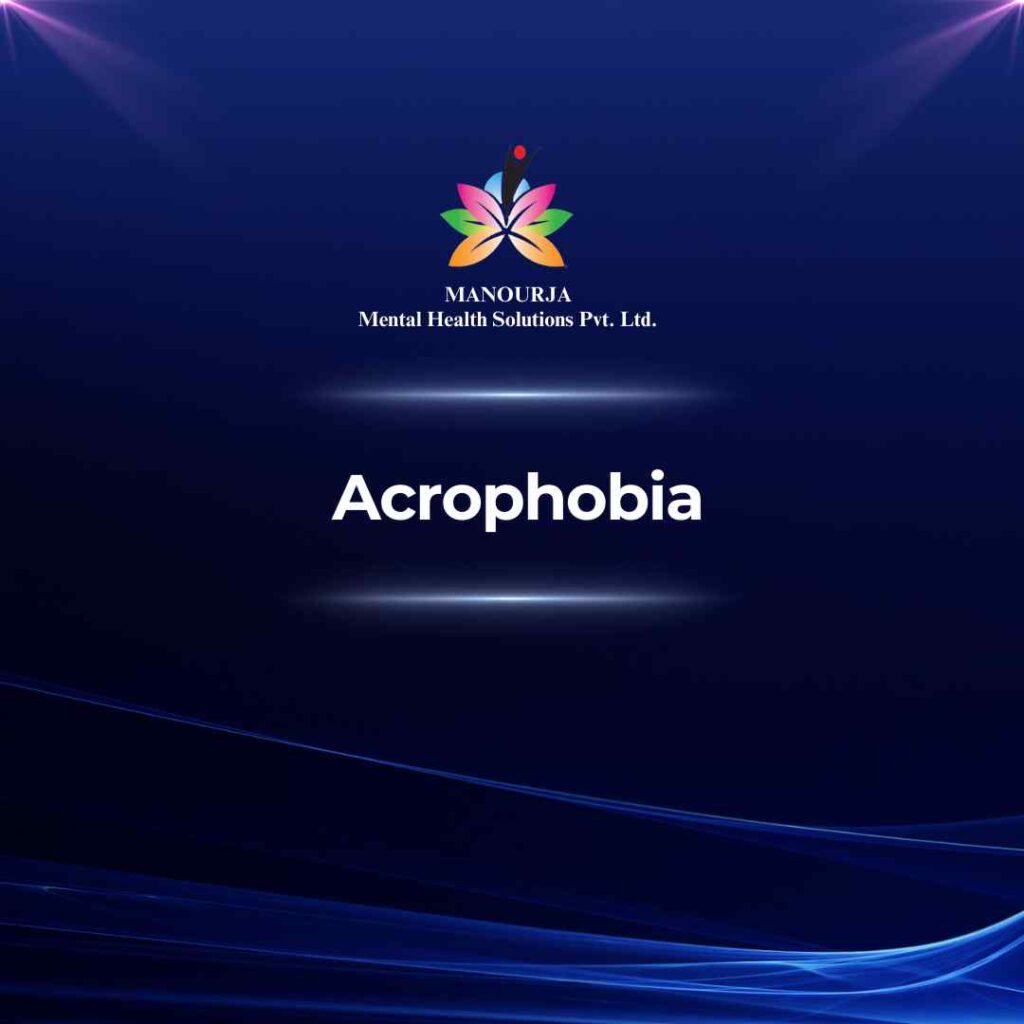Acrophobia

Acrophobia is an intense fear of heights. This fear can cause significant anxiety and distress, even when a person is in a relatively safe situation involving heights, such as being on a ladder, looking out from a window of a tall building, or crossing a bridge.
Acrophobia as a Sign and Symptom of Mental Illness
Acrophobia is a specific phobia, categorized under anxiety disorders. It manifests as an overwhelming and irrational fear of heights, leading to avoidance behaviors and significant distress when confronted with heights. Signs and symptoms of acrophobia include:
- Intense Fear: Extreme fear when thinking about, looking at, or being in high places.
- Anxiety and Panic Attacks: Feelings of dizziness, sweating, trembling, shortness of breath, rapid heartbeat, nausea, and a sense of impending doom when exposed to heights.
- Avoidance: Avoiding situations involving heights, such as flying, standing on a balcony, or even looking at tall buildings.
- Physical Symptoms: Symptoms can include vertigo, shaking, sweating, and a feeling of paralysis when at height.
Mental Illnesses Associated with Acrophobia
Acrophobia can occur on its own, but it is also associated with other mental health conditions. These include:
- Generalized Anxiety Disorder (GAD): Individuals with GAD may experience heightened anxiety in a variety of situations, including heights, exacerbating acrophobia.
- Panic Disorder: People with panic disorder may experience panic attacks when faced with heights, leading to or worsening acrophobia.
- Post-Traumatic Stress Disorder (PTSD): A traumatic experience related to heights, such as a fall or witnessing someone else fall, can trigger acrophobia.
- Obsessive-Compulsive Disorder (OCD): Some individuals with OCD might develop acrophobia due to obsessive fears about falling or losing control when at height.
- Social Anxiety Disorder: Although primarily characterized by the fear of social situations, individuals with social anxiety disorder might also develop specific phobias, including acrophobia, especially if social situations involve heights.
Understanding acrophobia and its connections to other mental health conditions can aid in developing effective treatment plans. These might include cognitive-behavioral therapy (CBT), exposure therapy, and, in some cases, medication to manage anxiety symptoms.
At MANOURJA, we believe in the transformative power of counseling. Our experienced therapists offer a safe and supportive space where you can explore your thoughts, emotions, and challenges. Through personalized counselling sessions, we’ll work together to develop coping strategies, build resilience, and achieve lasting positive change. Discover the path to a healthier, happier you with MANOURJA counselling services.
MANOURJA Rehabilitation Services
At MANOURJA, we’re dedicated to helping you in rebuild your life, after difficult times. Our rehabilitation services focus on understanding what you need to move forward, whether you’re recovering from addiction, trauma, or any psychological – social challenges. We create personalized plans, that are all about helping you, regain your strength and find hope again. With a caring team by your side, you’ll have the support to make real progress and take steps toward a brighter, healthier future
